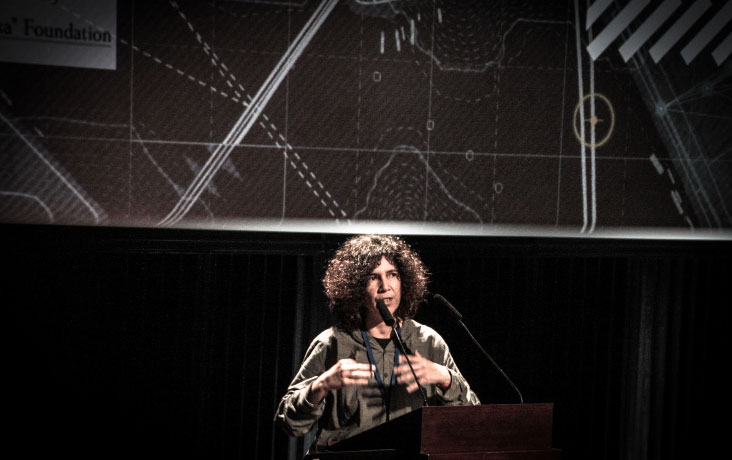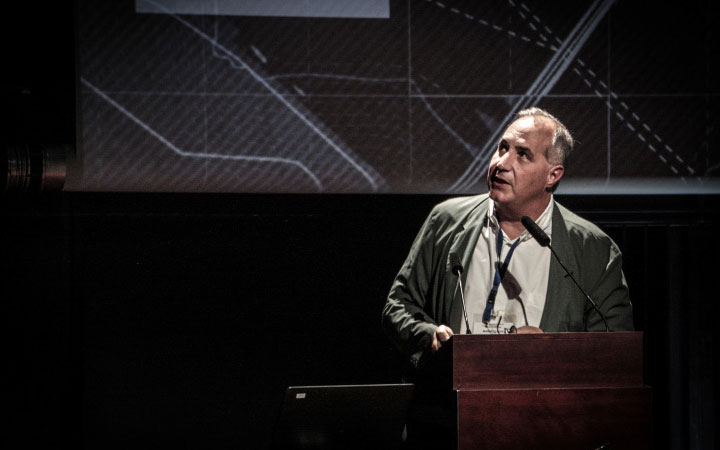
How do we re-learn our urban environment?
Adhocracy in contemporary city
Adhocracy is the system of flexible and informal organization and management in place of rigid bureaucracy. The first edition of adhocracy was based on the use of digital tools. In 2012 for Istanbul we were witnessing the rise of the digital technology applied to architecture design and to the city as well. Three years later, we have understood that it was more an attitude that the mere use of the tool. Our conclusion, for the exposition in Athens, was that the world is changing so fast
that we have no word to describe it and we are constantly trying to reinvent our dictionary, in this eternal search for meaning. The internet for example, has exponentially grow from its first network in the seventies and now we are interacting new manners, we are all becoming cyborgs with the smartphone as the sixth sense. All this concern us while it is difficult to simplify, to describe in few words. Our cities are mashup, buildings fused with technology mixed with the active citizen participation. At the same, this infinite network is incorrect as it could give us just some partial information or wrong directions. When we think about public space, multiple images come to our mind, from the radical utopias, to the terroristic attack and the bottom up protests in North Africa. I reject the word occupy, because we cannot occupy what is already ours, we are simply reusing a public space already belonging to us. We own, or we are supposed to own, spaces in cities. However, what is the urban environment nowadays? With augmented realities we can travel and discovery many places of the world just sitting in the couch. We can also inhabit the digital. We are chasing virtual pokémons in real environment, talking with real gamers in virtual network.
Awarness to shape our environment
The main point for us is to have a critical approach to the city. Most of the time we take for granted several rules that govern our environment and we have lost our curiosity, our ability to make questions constantly. We treat other persons as robots, so how can we restart the whole interaction and learn from the beginning technology? As we take for granted intangible flows while walking, the project from La Jetée (Giuditta Vendrame and Paolo Patelli) plays with the idea of rules and freedom in city making people question their behavior thanks to ludic activities. Moreover, the Campus in Camps project from Alessandro Petti and Sandi Hilal questions the temporality of refugee camp and the memory of knowledge about the tent. Finally, only by questioning and critically understanding, we can start transforming our cities.
by Ethel Baraona Pohl


